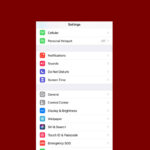With the ever-growing importance of digital privacy and control, a Linux phone offers an alternative to the mainstream operating systems. These smartphones provide users with the potential for greater security, privacy, and customization. Unlike their Android and iOS counterparts, Linux phones are designed with open-source principles, allowing users to have full control over their device and its software.
Linux phones cater to a niche audience that values the flexibility Linux offers. The market has several options, each with its own set of features and communities. Some popular models include the Librem 5 from Purism, which runs on PureOS, and the PinePhone, which offers a range of Linux distros to choose from. These devices are built with privacy in mind and are often equipped with hardware switches to control various sensors and connectivity options.

The Top Linux-Based Phones
1. The PinePhone Pro
The PinePhone Pro stands out as the best Linux-based phone currently available. It boasts improved performance and battery life compared to its predecessor, making it more suitable for daily use. It also features a user-replaceable battery and privacy switches, appealing to Linux enthusiasts who value freedom and control.
2. The Librem 5
While not as powerful as the PinePhone Pro, the Librem 5 prioritizes security and privacy with its hardware kill switches and open-source software stack. It’s ideal for users who want a phone that respects their digital rights and freedoms.
3. Volla Phone X23
The Volla Phone X23 is a newcomer to the Linux phone scene, offering a sleek design and a user-friendly interface. It runs Ubuntu Touch and comes pre-installed with privacy-focused apps, making it a great option for those seeking a balance of style and security.
4. The original PinePhone
While its hardware might be a bit dated, the original PinePhone remains a popular choice for developers and tinkerers. Its affordability and open nature make it a perfect platform for experimenting with Linux on mobile devices.
Linux-Based Phones: A Comparison
| Model | Price (Starting) | Operating System | Key Features | Ideal For |
|---|---|---|---|---|
| PinePhone Pro | $399 | Manjaro Linux, other distributions available | Improved performance, user-replaceable battery, privacy switches | Daily drivers, tinkerers |
| Librem 5 | $799 | PureOS | Hardware kill switches, open-source software stack | Security and privacy conscious users |
| Volla Phone X23 | €522 | Ubuntu Touch | Sleek design, privacy-focused apps | Users seeking a balance of style and security |
| PinePhone | $149 | Various distributions available | Affordable, open nature | Developers and tinkerers |
Key Takeaways
- Linux phones prioritize privacy and user control through open-source software.
- Popular models include the Librem 5 and PinePhone, with unique features catering to Linux enthusiasts.
- These devices allow users to tailor their smartphone experience and offer hardware switches for enhanced security.
Analysis of Top Linux Phones
The top Linux phones offer a range of specs, operating systems, and privacy features. They cater to different users, from tech enthusiasts to those who prioritize security.
Technical Specifications
Linux smartphones like the PinePhone and Purism Librem 5 are known for their specs that please tech enthusiasts. The PinePhone has options such as 2 to 3 GB of RAM and a decent processor for daily tasks. It has a removable battery and an LCD screen. The Purism Librem 5 steps it up with more RAM, making multitasking smoother.
Operating Systems and Ecosystems
These phones run on open-source Linux-based systems. UBports, PostmarketOS, and PureOS are some of the options users can enjoy. Each OS supports different features like Ubuntu Touch’s convergence ability or Plasma Mobile’s interface catered to touch.
Hardware Design and Build Quality
The build quality in Linux phones such as the PinePhone Pro with its Rockchip RK3399 is solid. They come with modular designs that are repairable. Features like USB-C, a headphone jack, and keyboard cases show attention to detail.
Customization and Community Support
Linux phones are developer-friendly. A strong community support system exists where developers share updates for software like Manjaro or Mobian. The phones are highly customizable, allowing tech-savvy users to change interfaces with tools like Phosh.
Privacy and Security Features
Privacy is a big deal for Linux phone users. The Purism Librem 5 includes hardware kill switches for privacy protection. Linux phones focus on security with encrypted software and the option to fully control privacy settings. This makes them a strong choice for privacy-conscious users.





